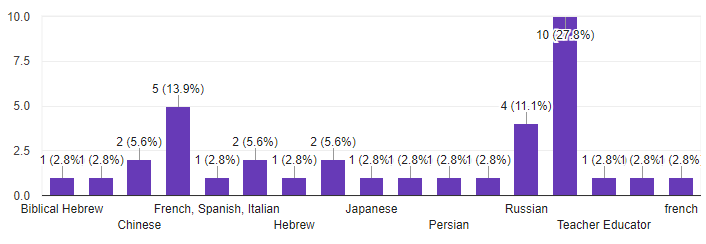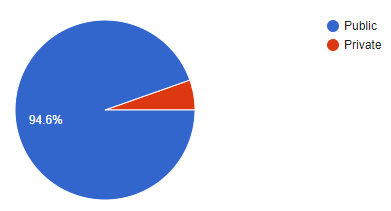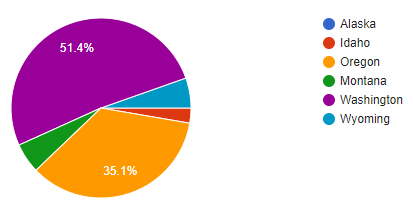Research
The Global Seal in Higher Education
Survey Introduction Survey Questions and DataSurvey Introduction
Title: Language Proficiency Awards and Seals Study
The UW Language Learning Center is conducting the following research project.
This survey is to help us research and better understand language faculty’s interest in, awareness of, related needs, and possible implementations of language proficiency awards, specifically, the state Seal of Biliteracy, the Global Seal of Biliteracy, and/or their own home-grown Seal at their institution. This information will be used to better support efforts to promote and implement seals and proficiency pathway awards in the PNCFL region (Alaska, Idaho, Oregon, Montana, Washington and Wyoming).
The survey includes 13 questions.
We estimate that it will take the average respondent 5-15 minutes to read and complete the survey. There is no compensation for participation, but your time and responses are appreciated and your responses will help us better understand the needs of postsecondary language faculty (and students).
Consent Information
Participation in this research survey is voluntary. If you do not wish to participate at any point, there will be no penalty or loss of benefits to which you would otherwise be entitled.
If you complete the following survey, you consent to the researchers using your responses to complete a report on the topic. You will not be asked for any identifiable information, such as your name. You will have the option of providing your email if you are interested in communicating with the researchers further about your responses and/or the study. You are welcome to stop participating in the survey at any point. You can contact us (lwbp@uw.edu) at any time after completing the survey if you would like us to remove your responses from the survey.
If you have any questions or concerns, please contact the researchers at lwbp@uw.edu.
The State Seals of Biliteracy
The following is a link to the national website for all state seals: [https://sealofbiliteracy.org] Below are some key details (not exhaustive) and direct links to each PNCFL state’s seal websites. Please review your state's information.
Alaska
To be awarded the Alaska Seal of Biliteracy, a high school student must meet the following criteria: 1) Demonstrate proficiency in English language, and 2) Demonstrate proficiency in one or more world languages (Intermediate-mid level or higher on the ACTFL scale). More info about the Alaska State SoB can be found here: [https://education.alaska.gov/alaska-seal-of-biliteracy]
Idaho
In Idaho, a Biliteracy Diploma can be awarded to every student who meets the requirements of graduation established by the School, demonstrates proficiency in English, and meets one of the requirements for demonstrating proficiency in a language other than English (including demonstrating proficiency in the world language at the intermediate mid-level or higher based on the ACTFL proficiency guidelines). More info about the Idaho State SoB can be found here: [https://www.sde.idaho.gov/academic/arts-humanities/seal-of-biliteracy.html]
Montana
The Montana Seal of Biliteracy is an award given by a school, school district, or state in recognition of students who have studied and attained proficiency in two or more languages by high school graduation. Students can qualify for either the Gold Seal (Intermediate Mid) or the Platinum Seal (Advanced Low). More info about the Montana State SoB can be found here: [https://bpe.mt.gov/Seal-of-Biliteracy/Seal-of-Biliteracy]
Oregon
The Oregon State Seal of Biliteracy (OSSB) has the following three qualifying criteria for high school students graduating in 2022: Meet all graduation requirements; Pass Essential Skills assessment for reading and writing domains; Score at the Intermediate High level on partner language assessment in all four language domains. The Oregon State Seal of Biliteracy was the first in the nation to collaborate with post-secondary institutions to offer the Seal. Currently, two state universities and one community college offer the OSSB to their students. More info about the Oregon State SoB can be found here: [https://www.oregon.gov/ode/students-and-family/equity/EngLearners/Pages/BiliteracyInitiatives.aspx]
Washington
Only K-12 students who graduate from a public high school can earn the State SoB currently. Students must score at the Intermediate Mid level and above for two languages (e.g., English as an L1, and Korean as an L2). More info about the Washington State SoB can be found here: [https://www.k12.wa.us/student-success/resources-subject-area/world-languages/washington-state-seal-biliteracy]
Wyoming
There are three requirements for a student to earn the WY-SoBL: 1. Meet all Wyoming graduation requirements; 2. Demonstrate proficiency in one of the English Assessments; Demonstrate proficiency in one or more of the World Language Assessments (e.g., at least Intermediate-Mid for the seal, and Intermediate-High for the seal with Advanced Distinction). More info about the Wyoming State SoB can be found here: [https://edu.wyoming.gov/educators/wyoming-seal-of-biliteracy/]
The Global Seal of Biliteracy
Anyone, including university students, is eligible to earn the Global SoB.
There are three levels of the Global SoB that can be earned (based on the ACTFL Proficiency Guidelines):
Global Seal of Biliteracy Awards / Baseline proficiency required
Functional Fluency / Intermediate Mid or higher
Working Fluency / Advanced Low or higher
Professional Fluency / Advanced High or higher
Students can take a number of qualifying tests and can use some academic transcripts as evidence of sufficient English proficiency. The Global SoB also offers options for students to pay for and earn college credits. More info about the Global SoB can be found here: [https://theglobalseal.com/] and [https://theglobalseal.com/college-credit]
Proficiency Pathway Awards
In order to recognize language proficiency development ‘on the path’ to functional fluency and beyond, the Global SoB initiative has also created a series of proficiency pathway awards for three levels on the ACTFL scale (Novice Mid, Novice High, Intermediate Low) leading up to the Functional Fluency Seal level of Intermediate Mid. More info about the Global SoB Proficiency Pathway Awards can be found here: [https://theglobalseal.com/pathway-awards]
Survey Questions (& Data)
Q1: What language(s) do you teach?

Q2: Do you teach at a public or private institution?

Q3: In what state do you currently teach (primarily)? (Alaska, Idaho, Oregon, Montana, Washington, Wyoming)

Q4: To what levels do you teach the language(s) (e.g., introductory, advanced, all)?
| Levels (*College, unless noted) | # of Respondents |
| All | 13 |
| Introductory | 3 |
| Advanced | 6 |
| Introductory - Intermediate | 4 |
| Introductory - Advanced | 2 |
| Intermediate - Advanced | 3 |
| Teacher Educator | 2 |
| K-8 | 1 |
| High School (all grades) | 4 |
Q5: Before reading the section above, how familiar were you with your state’s Seal of Biliteracy? (1 ‘not at all familiar’ / 5 ‘extremely familiar’)

Q6: Before reading the section above, how familiar were you with the Global Seal of Biliteracy? (1 ‘not at all familiar’ / 5 ‘extremely familiar’)

Q7: Before reading the section above, how familiar were you with the Global Seal of Biliteracy proficiency pathway awards? (1 ‘not at all familiar’ / 5 ‘extremely familiar’)

Q8: Are you aware of any students at your institution who have received a seal of biliteracy or proficiency pathway awards, either before, during or after taking your classes? (Please provide your general understanding and/or rough numbers. Please do not provide any identifiable information about your students.)
Q9: How common is it for your students to take official language proficiency tests (whether on the ACTFL, ILR or CEFR scales)? (1 ‘they never take them’ / 5 ‘they always take them at least once’)

Q10: What value, if any, do you see in making available pathway awards and seals in your language classroom/program? (1 ‘no value at all’ / 5 ‘a high degree of value’)

Q11: Why did you give the response you did to the question above? (Why do you, or do you not see value in making these awards available?)
Q12: If you see value in these awards, what challenges do you foresee there being (if any) for implementing language pathway awards and proficiency seals in your language classroom/program?
Q13: If you see value in these awards, how could other organizations (such as your state public education administrators, institution’s administrators, outside language organizations (e.g., PNCFL, WAFLT, etc.) best help you to promote and implement these awards and seals in your program?
Please provide your email if you give us permission to follow up if we have additional questions about your responses.
Q14: If you are open to the researchers following up with you if we have additional questions about your responses, please provide your email.
Thank you very much!
Thank you very much for taking the time to help us understand this topic better. We plan to share the results at the PNCFL 2024 conference as well as other events and organizations as soon as they are available.
If you have any questions or concerns, please contact us at lwbp@uw.edu.
